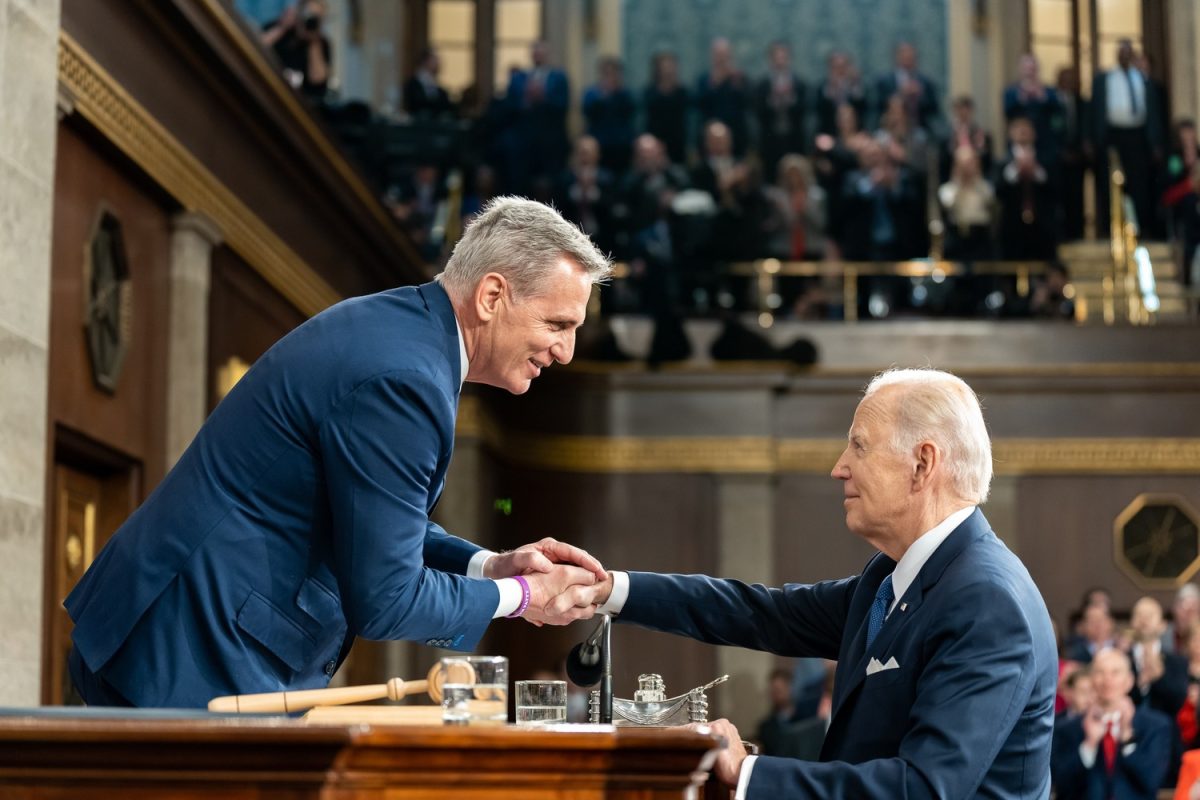The American government is amid significant political turmoil, with Senator Dianne Feinstein’s death and Kevin McCarthy’s ouster as Speaker of the House shaking up Congress. These events and the upcoming elections in 2024 serve as a perfect opportunity for Americans to elect younger and less polarizing politicians who can lead our future generations under a banner of unification.
Feinstein’s death and McCarthy’s ouster, occurring within days of each other, brought about many questions, particularly concerning the increasing age of high-profile politicians and the worsening divisions within Congress. Both of these topics constitute major issues for our government and have been worsening over the past few years, evidenced by the recent drama over the Speaker of the House and flubs by the older generations in government.
Firstly, many debates among the American public center around age, particularly the question of how old is too old for politicians. The main target of these debates is President Biden, who has been heavily criticized during his presidency for his age, as he is currently 80 and was the oldest person elected president when he was 77. Additionally, his series of gaffes, including tripping on stairs and falling off his bicycle, has led to viral moments and many questioning his ability to lead the country, shown through an August 2023 AP-NORC poll where 77% of adults surveyed saw Biden as too old to serve another term as president effectively.
Before her death on Sept. 29, Feinstein herself was another high-profile figure questioned for their ability to lead due to their age. She had missed 91 Senate votes while recovering from the shingles earlier this year and was scrutinized for a moment of awkwardness during a vote upon her return. In fact, the median age of the current House is 57.9, and the median age of the current Senate (before Feinstein’s death) is 65.3, according to Pew Research Center, much higher than the average age of Americans at 38.9.
These statistics, combined with the scrutiny older politicians have faced (including 81-year-old Senate Minority Leader Mitch McConnell, who has been documented freezing twice on camera), illustrate how the rising age of many government officials and leaders is a liability for our country. This is why we must turn toward younger leaders in future elections rather than continuing to elect older politicians whose abilities will only decline as they age. Younger politicians resonate better with younger generations, and we need representatives who will adapt the country’s policies to best benefit the future workforce. Finally, younger politicians can infuse Congress with innovative ideas and create a better long-term vision for America.
In addition to ushering in a younger group of politicians, we need to ensure these politicians are compatible with each other and can work together to create lasting change. Right now, Congress is extremely divided, as shown by the removal of McCarthy as Speaker, where eight Republicans, led by Matt Gaetz, along with Democrats, voted to remove him as Speaker by a vote of 216 to 210. Whereas Republicans and Democrats tend to vote with their respective parties as a bloc, McCarthy’s ouster shows the widening split within the Republican side of the House.
In particular, Gaetz’s actions, where he filed a lone motion to remove McCarthy, also a Republican, have created calls among Republicans to remove Gaetz as a House representative, according to the Washington Post. Due to this event, the Republican party has split into two major sides: the hard right, which Gaetz is a part of, and the moderately conservative side, which McCarthy belonged to. Even more dire is the increased division between Republicans and Democrats, whose ideologies continue to drift further apart, and many policies being decided solely based on the majority party in Congress.
The controversies that have resulted from McCarthy’s ouster as Speaker of the House have proven that Congress needs members who can compromise and form a compatible legislature. Although the Democrats and Republicans may never be able to reconcile fully, they at least need to co-exist and be willing to work together for the betterment of America rather than continue to promote their own party’s improvement. Gridlocks due to a split in Congress cannot continue to happen in the future, especially over essential issues such as climate change, healthcare, and income inequality, so we need younger, more innovative leaders who can be compatible with the opposing party to pass the necessary legislation. Above all, the politicians Americans elect in 2024 must restore faith in our system and prove that our government can rebound from its floundering reputation of the past few years.
*This editorial reflects the views of the Scot Scoop Editorial Board and was written by Myles Hu.
The Editorial Board voted 11 in agreement and 6 refrained from voting.












